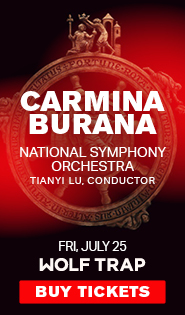21st Century Consort serves up a generous array of new music at St. Mark’s

Juri Seo’s “#three” was performed by the 21st Century Consort Saturday night at St. Mark’s Episcopal Church.
Counting is fundamental to music, one of the first things young musicians learn about rhythm. The 21st Century Consort named its latest program “Count the Ways,” a reference partly to the concert’s proximity to Valentine’s Day. Heard Saturday evening at St. Mark’s Episcopal Church on Capitol Hill, the program also featured seven musicians in various combinations from one to five.
Flutist Brice Smith performed the only solo work, Move It by Carlos Simon, composer-in-residence at the Kennedy Center. Simon sought “to make this piece an imaginary syncopated joy ride,” written in 2020 to represent the desire, his and everyone else’s, to break out of Covid lockdown. Smith flew through this short, active work, with percussive effects woven into the cascades of descending scales, high trills, and fluttery repeated notes.
Jessie Montgomery, a violinist, composed her Duo for herself and a cellist friend, “as an ode to friendship with movements characterizing laughter, compassion, adventure, and sometimes silliness.” The first movement did not quite jell rhythmically at first between violinist Derek Powell and cellist Rachel Young, although things came together in the more puckish pizzicato section, with its joking glissando bends.
Both musicians impeccably tuned the sighing double-stops in the second movement, with Young rising through her range into an urgent, anguished solo on the top string. Powell then took up this theme on his lower strings in a mistier tone, after which the pair joined together in a tender lament. The daredevil third movement was a wild galop, with skittish off-string effects and a multitude of running figures.
Stephen Jaffe’s Trio for Clarinet, Viola, and Piano, written in 2020, received its belated world premiere. The work opens beautifully, with clarinetist Paul Cigan and violist Daniel Foster weaving together slow lines, and pianist Lisa Emenheiser then filling out the triadic harmony. The high writing challenged both Cigan and Foster at times, but the clarinet’s exposed ending in the stratosphere did not falter.
Each of the four movements explored motifs and themes in alternate characters, but without seeming to develop them effectively. The melodies often circled back on themselves endlessly, and each movement could benefit from significant pruning. As the first of two pieces for three instruments, it probably should have been cut from this already long program.
By contrast, #three, composed by Juri Seo in 2015, was concise and thrilling, and provided a rousing conclusion to the evening. Built out of “jazzy snippets” that percolate through various guises, according to the composer, the piece veered from jazz trio to Rachmaninoff concerto and back again. Pianist Lisa Emenheiser riffed madly in the extended cadenza toward the midpoint, with hints of Rhapsody in Blue and romantic blockbusters tinged with funk.
Percussionist Lee Hinkle created the illusion of a drum kit, including a spastic drum break, with just a hi-hat, pedal-struck bass drum, and vibraphone. The amplified double-bass of Rick Barber electrified the combination at significant points, not least providing the final note of the work, a groaning glissando downward, going far off the staff as Barber comically loosened the peg holding his lowest string.
The greatest degree of musical complexity came with Musica a Quattro, a 1998 work by Stanisław Skrowaczewski, the Polish pianist and conductor who succeeded Antal Doráti as music director of the Minnesota Orchestra. Dense counterpoint and dissonant clashes marked the first movement, with a somber fugal subject passed around among violinist Derek Powell, violist Daniel Foster, cellist Rachel Young, and clarinetist Paul Cigan.
Sarcasm reminiscent of Shostakovich soured the second movement, a tour de force of rapid shard-like themes. Cigan shaded his melody of long notes beautifully in the third movement, set up by guitar-strummed chords from the strings. The clarinet solo called forth other cadenzas, played just as convincingly in cello and violin. After a neurotic scherzo in the fourth movement, capped by ghostly harmonics, lush chromatic harmony flowed through the sustained finale.
Most extraordinary was the dramatic cantata-like Tan-Tan composed in 2020 by Hannah Kendall, who was born in London of parents from Guyana and is now based in New York. The scene is drawn from a folktale-like work of Jamaican-born Nalo Hopkinson, about a woman named Tan-Tan who takes a starving man, Dry Bone, from the forest into her hut.
Soprano Lucy Shelton, a legendary figure in contemporary music now in her late 70s, wove a spell as the title character, with a wobbly singing vibrato augmented by wind-like sounds and, at one point, a music box turned by a crank. Percussionist Lee Hinkle answered Shelton with reedy harmonica notes, other wind-like sounds, and wordless vocalises. Conductor Christopher Kendall coordinated the exceptionally creepy, surreal woodwind aura, both pitched and unpitched, added by Cigan, Smith, and Powell.
The 21st Century Consort closes its season with a concert of music by Hilary Tann, Carlos Simon, Eleanor Alberga, and Paul Schoenfield 5 p.m. April 9. 21stcenturyconsort.org


